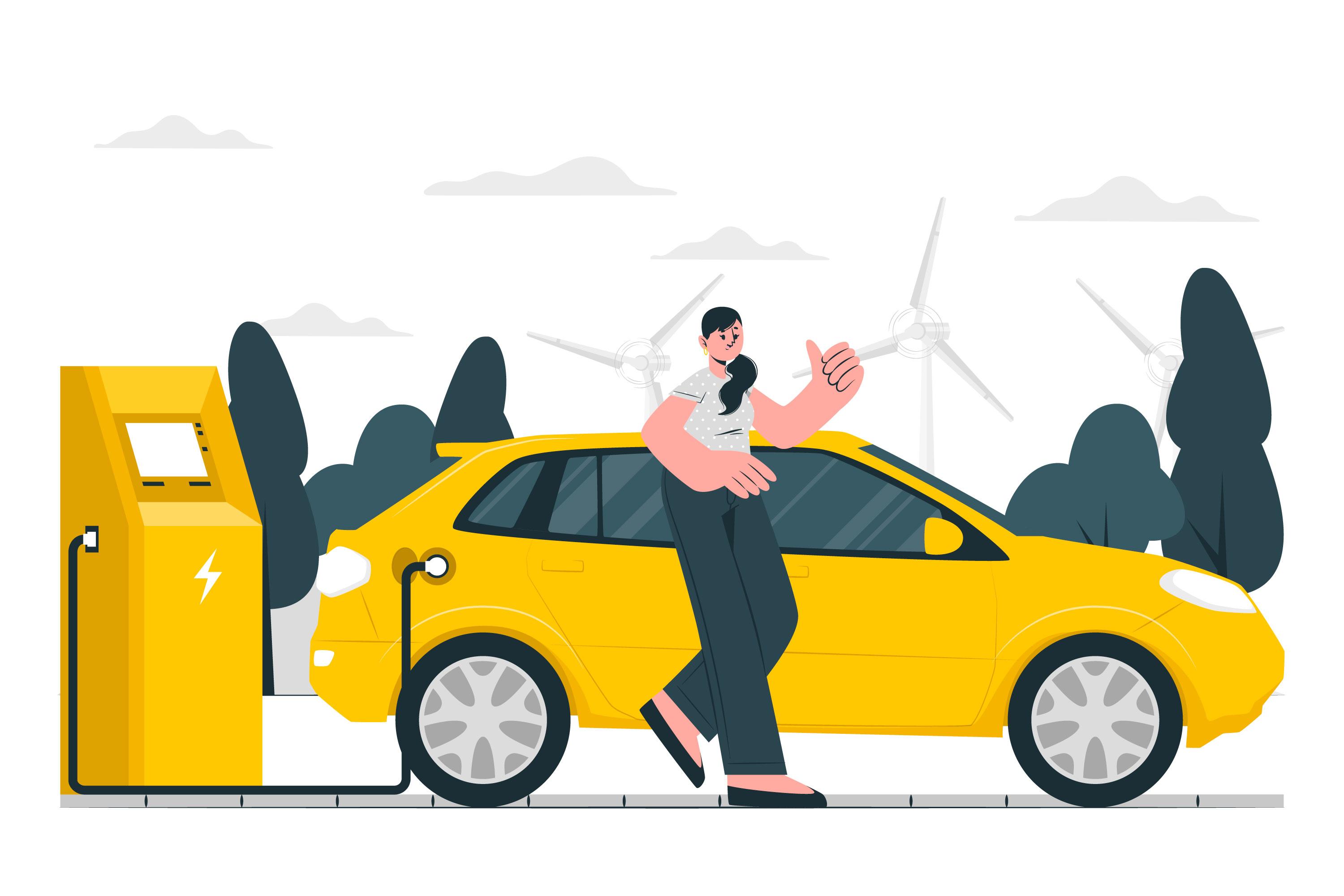The Rise of Electric Vehicles in India

India is gearing up for a monumental shift on its roads. The roar of gasoline engines is gradually giving way to the quiet hum of electric motors, marking the beginning of the Electric Vehicle (EV) revolution. This shift promises not just a quieter driving experience, but a cleaner, more sustainable future for the country.
For years, major cities like Delhi and Mumbai have grappled with severe air pollution, primarily caused by transportation emissions. Additionally, India's heavy reliance on imported crude oil poses economic and security concerns. Electric Vehicles offer a compelling solution to both these challenges.
The Indian government is actively driving this revolution. Schemes like the Faster Adoption and Manufacturing of Hybrid & Electric Vehicles (FAME) provide subsidies on electric car purchases, making them more affordable. Additionally, the National Electric Mobility Mission Plan (NEMMP) aims to create a complete EV ecosystem, including building charging stations and fostering research and development.
The EV Solution for India's Challenges
Electric vehicles offer a multi-pronged solution to some of India's most pressing concerns:
Combating Air Pollution: A 2023 report by IQAir ranked India as the third most polluted country globally, with transportation being a major contributor. Electric vehicles, with zero tailpipe emissions, can significantly improve air quality. This leads to a healthier population and potentially reduced healthcare costs associated with respiratory illnesses.
Decreasing Oil Dependence: India relies heavily on imported oil, with over 80% of its crude oil coming from overseas sources. This dependence exposes the country to fluctuations in global oil prices and potential supply chain disruptions. Electric vehicles, powered by electricity, help reduce reliance on imported oil and promote energy security for India.
Lower Running Costs: Fuel prices in India are prone to fluctuations, putting a significant burden on consumers. Electricity is generally cheaper than petrol or diesel. While the upfront cost of EVs might be higher, lower running costs and government incentives can make them more economical in the long run.
Choosing Your Electric Ride: Types of EVs Available
Before diving headfirst into the world of EVs, it's important to understand the different types available:
Battery Electric Vehicles (BEVs): These are the most common type of EV. They rely solely on a battery pack for power and have a zero-emission range. Popular BEV options in India include the Tata Nexon EV, Tata Tiago EV, Tata Tigor EV, Tata Punch EV, MG ZS EV, and Mahindra XUV400.
Plug-in Hybrid Electric Vehicles (PHEVs): PHEVs combine an electric motor with a conventional internal combustion engine. They can be plugged in to charge the battery for electric-only driving or use the gasoline engine for longer distances. This offers greater flexibility for those who might experience range anxiety. Currently, PHEV options in India are limited compared to BEVs.
Gearing Up for an Electrifying Future
With growing environmental awareness and government support, the future of electric vehicles in India looks bright. Here's a glimpse into what we can expect in the coming years:
More Affordable Options: Government initiatives to boost EV technology and production will lead to a wider range of EVs at competitive prices. This will make them accessible to a larger segment of the Indian market, driving up adoption rates.
Advanced Battery Technology: Battery range anxiety is a major concern for potential EV buyers. However, advancements in battery technology are expected to significantly improve range and charging times. Solid-state battery technology, currently under development, promises even faster charging and potentially longer driving ranges, easing range anxiety and making EVs a more practical choice.
Improved Charging Infrastructure: A robust network of charging stations, including fast-charging options, is crucial for long-distance travel with EVs. Investments are being made to address this, and advancements in home charging solutions will further enhance convenience for EV owners.
The Emerging Heroes Of the EV World
While the market of EV is still undergoing many transitions, there are few car brands which have already begun to accelerate in their way into the electric driving era. Some of the popular car brands listed below are gaining popularity amongst the customers-
Tata Motors: Tata is a frontrunner in the Indian EV space, offering popular models like the Nexon EV, Tiago EV and now the newly launched India’s first SUV coupe, Tata Curvv.
Mahindra & Mahindra: Mahindra recently entered the EV market with the well-received XUV400 electric SUV which is doing wonders with the customers.
MG Motor: MG offers the ZS EV, a feature-rich electric SUV with a good driving range, making it a dependable choice.
Hyundai & Kia: These Korean brands are expected to launch new EV models in India soon, including the Ioniq 5 and EV6.
The Indian government's ongoing drive to change the driving experience, coupled with rising consumer awareness and eco-consciousness, along with innovative technology, are all accelerating the EV movement in India. Despite the numerous hurdles, the era of EV has begun. As technology advances and infrastructure improves, EVs are poised to become a mainstream choice for Indian consumers. So, buckle up and get ready to experience the satisfaction of a cleaner, greener drive!
Disclaimer - This blog post ("Powering Up India: The Rise of Electric Vehicles") is for general information only. Consult a professional for insurance advice and EV research. IFFCO Tokio doesn't endorse EVs mentioned. Research thoroughly before purchase.


